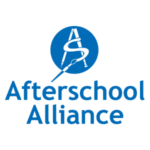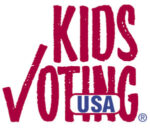Social Justice
Advancement Project, #POLICEFREESCHOOLS, and Alliance for Educational Justice has created an action kit designed to equip providers with the necessary tools to protect students identified as immigrants. The goal of the action kit is to provide partner providers with information regarding current landscape and resources to support with community efforts.
The Human Rights Campaign (HRC) has provided a website hub network with various resources to support LGBTQ+ community members and families navigate executive orders, federal actions, and policies.
To ensure that voices are amplified and that the stories of everyday people are empowered amidst opposition, Teaching for Change has created the Civil Rights Teaching website. The website offers lessons, handouts, resources, and news to implement in classroom teaching to engage students in their own knowledge and community activism. Teaching for Change is an active partner in the Freedom Movement Educational Initiative.
Sponsored by North Carolina State University, the Virtual Martin Luther King, Jr. Project (vMLK) developed as a pilot project. The vMLK team in conjunction with faculty at Southease Raleigh Magnet High School developed a website with resources intended to offer learning experiences and no-cost professional development opportunities for North Carolina teachers and students grades 8-12.
The National Museum of African American History & Culture offers educators and community activists a resource centered on Martin Luther King Jr. and his dream for not only his community, but the world. This resource offers activities, information, as well as links to alternative resources to discuss big topics with children including racism and activism.
EDSITEment offers resources for K-5 to discuss art, culture, history, and legacy of the Anishinaabe, Ojibwe, Chippewa tribal nations. Intended to support student knowledge in diverse people groups, this resource encourages differentiated and accurate understanding of those living throughout lands referred to as North and South America. Additional links are provided on the resource site to extend learning as well as guiding questions.
This resource provided by the ACLU gives guidance to knowing your rights when questioned by law enforcement agencies and authorities. A copy of “My Rights Card” is available in this resource for use if needed. This resource is prepared in Spanish.
A Native woman-led racial and social justice organization, IllumiNative has created free resources (in partnership with the National Indian Education Association and Amplifier) that increase the visibility of and challenge the negative narratives of Indigenous peoples.
Resources available include youth and adult publications centered in advocacy, awareness, and research. Lesson plans include remote learning opportunities that explore the work of Indigenous leaders and changemakers in digital tool formats for grades PreKindergarten through 8th grades.
Election season presents an important opportunity to put afterschool on the radar of policy makers and the public in a visible and meaningful way.
The resources in this toolkit will help you spark conversations about afterschool with candidates for office in your local community or state. Included are talking points, sample materials, and information on how your non-profit organization can participate in the electoral process.
From iCivics Election Headquarters: The best way to strengthen our democracy is to teach it. Presidential elections provide one of the most visible teachable moments for civic education.
By discussing the election, the processes surrounding it, and the role of the people, we have the opportunity to build young people’s confidence in our country.
With free election-focused games and nonpartisan teaching resources specific to high school, middle school, and elementary students, you can help young people understand the power of their voice and vote, learn about state, local, and federal election processes, and become informed and engaged participants.
Kids Voting USA (KVUSA) is a national nonprofit organization working to secure the future of democracy by preparing young people to be educated, engaged voters.
Kids Voting USA Classroom Activities: 9-12 is designed to facilitate secondary school teachers in addressing civic learning objectives, especially those that relate to voting and elections. The resource is comprised of engaging activities that foster group discussion and the use of critical thinking skills.
The goals of Kids Voting USA classroom activities are for students to:





Together in a collaborative partnership, the Human Rights Campaign Foundation and OutVote offer a Campus Organizing Guide to the 2024 Election. This resource provides information and a step-by-step guide for college students to participate in the election as active voters. If a student is not yet registered to vote, the Campus Organizing Guide also provides information on how to do so.










